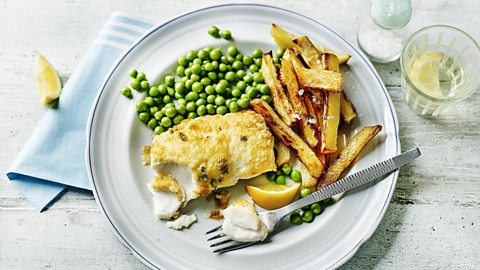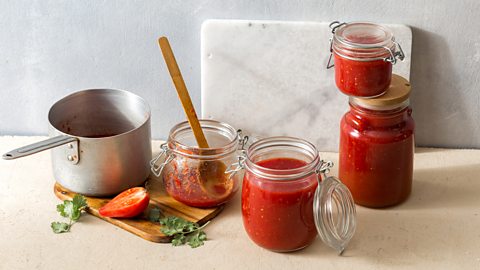These are the worst foods for your gut
We know that eating lots of fruit, vegetables and fermented foods are good for our gut, but what foods should we avoid for optimal gut health?
By Kat Storr

Science is constantly learning more about how the gut interacts with the rest of the body. And with every breakthrough, doctors, dietitians and nutritionists update their advice on the foods we need to include in our diet for general good health.
We’re instructed to eat 30 plant points a week, to increase our fibre and told that following a Mediterranean ‘blue zone’ diet could be the key to living a long life.
Nutritional scientist Toral Shah explains that our gut microbiome is important because its “intricate system of bacteria, fungi, viruses and other microscopic organisms works together to break down foods, absorb nutrients and fight off harmful pathogens.
“From digestion to immune response, gut health plays a crucial role in maintaining our overall health and wellness including impacting things like mental health, IBS, liver health and obesity.”
Like every part of our body, our gut is completely unique which means the food we eat affects us all differently. But what are the worse foods for our gut health? Here’s what the experts say…
Ultra-processed foods (UPFs)
UPFs are foods which have been manufactured using artificial ingredients such as flavour enhancers, emulsifiers and additives. Examples such as ham, sausages, breakfast cereals, ice cream and biscuits, are often high in calories but low in nutrients.
It’s not known exactly why UPFs are bad for our health – it’s likely due to a myriad of reasons. One recent study stated they’re potentially linked to 32 health issues, with their effect on the gut microbiome seen as a key factor. The paper stated that UPFs may create ‘changes to the gut microbiome and increase inflammation,” which in turn causes many of the 32 health issues.
In addition, studies have shown that some additives and emulsifiers used in UPFs to make them appealing to consumers can weaken your gut barrier, leading to inflammation, constipation and other health problems such as weight gain and heartburn.
While giving up UPFs completely can be incredibly difficult, experts suggest you follow the 80/20 rule – where you try to eat healthy 80% of the time and allow yourself treats the remaining 20% of the time.
Yoghurt bark
Have a sweet tooth but want to lower the amount of UPFs you're eating? Try this yoghurt bark

Fried foods
Foods cooked in oil or deep fried contain saturated and trans fats which can be difficult to digest and affect your gut microbiome.
Stir-frying food is a good alternative, it will reduce your fat consumption and make it easier for your gut to digest the foods and have less of an impact on your good gut bacteria. If you love fried food you don’t have to give it up completely, once again you could include it in the 80/20 rule.
Lighter fish and chips
Eating less fried food doesn't mean you have to go without your favourites, turn to your oven or air fryer instead of deep frying the core ingredients

High-sugar foods
Sugary cereals, ice cream and cakes are just some examples of foods which are high in refined sugar and could harm your gut if eaten too frequently. Sugar can cause inflammation in your gut which can damage its protective mucus layer and harm the good bacteria that we all need.
One study found that mice who consumed a large amount of refined sugar had high instances of gut disease, including colitis.
High-sugar foods don’t just include sweets and cakes though. Fruit juices, yoghurts, sauces, soups and salad dressings can all contain surprising amounts of sugar so it’s always worth checking the label when shopping. The NHS recommends adults have no more than 30g of free sugars, defined as ‘sugars added to food or drinks and sugars found naturally in honey, syrups and unsweetened fruit and vegetable juices, smoothies and purees,’ per day.
Artificial sweeteners
Popular because they are low in sugar and calories, there’s a lot of conflicting information regarding the impact they could have on our gut health.
“In the past, experts believed artificial sweeteners had no effect on the body because they were considered inert. This is because our digestive enzymes are unable to break them down, so they typically pass through our system without being altered,” explains Shah.
But studies on animals have shown sweeteners can impact gut bacteria. However, it’s important to remember that this might not mean it applies to humans too. And the research that has focused on humans has shown conflicting results.
More research needs to be done in this area, but all sweeteners used in the UK must be approved for safety before they are used in food and drink.
Alcohol
Nutritionist Rohini Bajekal says alcohol can be one of the worst lifestyle choices for our gut health. She explains it can disrupt the balance of good and bad bacteria in our guts and cause chronic inflammation, irritating cells in the stomach lining. This is also known as gastritis.
This is backed up by a 2017 study which looked at the effect of alcohol on our gut and immune system. It found that ‘alcohol can induce intestinal inflammation through a cascade of mechanisms that subsequently lead to inflammation and organ dysfunction throughout the body, in particular in the liver and brain’.
Olly’s sham-pagne
Want to drink less alcohol? This non-alcoholic cocktail is refreshing

While moderate drinking is unlikely to cause significant damage, if you drink more than recommended you may experience bloating, constipation and discomfort.
There is potentially one exception to the rule though, red wine. Researchers at Kings College, London, conducted a study in 2019 which examined the impact various types of alcohol had on the gut and found a moderate intake of red wine could actually help your gut.
Lead author, Dr Caroline Le Roy said: “While we have long-known of the unexplained benefits of red wine on heart health, this study shows moderate red wine consumption is associated with greater diversity and a healthier gut microbiota that partly explain its long debated beneficial effects on health.”
Originally published July 2024



